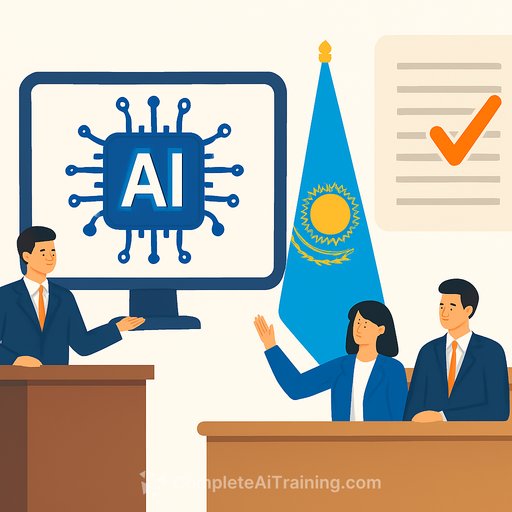Steve Britt Named General Counsel of National Artificial Intelligence Association
Steve Britt, managing partner at Britt Law in Mount Pleasant, South Carolina, has been appointed general counsel for the National Artificial Intelligence Association (NAIA). Established in January, NAIA’s mission is to support American businesses in developing or using artificial intelligence while ensuring innovation, opportunity, and global leadership.
In his new role, Britt will lead the association’s legal strategies and policy initiatives. He brings extensive expertise, holding three certifications from prominent AI regulatory organizations worldwide. His background includes serving as cyber, data privacy, and AI counsel at Parker Poe, and he earned his Juris Doctor from West Virginia University.
How Britt Entered the Artificial Intelligence Field
Britt’s interest began with data privacy around 2018, which led him to pursue certifications in the area. The launch of ChatGPT and the introduction of the Artificial Intelligence Governance Professional (AIGP) certification by the International Association of Privacy Professionals (IAPP) deepened his focus. He obtained the AIGP certification last July, which broadened his perspective on AI governance distinct from traditional data privacy.
The Challenge of Fragmented AI Laws
Currently, no federal statute governs AI or data privacy comprehensively. This gap results in a patchwork of state laws, each with different terms, priorities, and requirements. Britt warns that this fragmentation could slow innovation and limit the benefits AI can offer.
He explains, “The absence of a federal law means businesses face a Rubik’s Cube of regulations from various states, complicating compliance and planning efforts.” NAIA is advocating for clearer, unified federal legislation to address these challenges.
NAIA’s Current Priorities
NAIA focuses on helping businesses understand and comply with existing AI and data privacy regulations. Britt describes the work as consulting-driven, involving mapping a company’s data practices and identifying which laws apply. With 24 state data privacy laws and four new state AI laws, the compliance landscape is increasingly difficult for businesses to manage.
Guidance for Legal Professionals on AI
Britt highlights copyright infringement concerns tied to AI use, particularly referencing issues with OpenAI’s models. Law firms often rely on established legal data platforms like Bloomberg and Westlaw to mitigate these risks during legal research.
He emphasizes caution in how AI tools are used, especially regarding client data protection to prevent unintended disclosure. Legal professionals must pay close attention to what information feeds into AI models and ensure confidentiality standards are maintained.
Looking Ahead: AI’s Impact on the Legal Community
Britt believes the legal field will adapt smoothly to AI’s integration, much like it did with internet law. He sees AI expertise becoming a distinct legal specialty. While some clients still focus primarily on traditional data security issues like breaches and ransomware, they recognize AI’s importance but often lack clear directions on implementation.
Many organizations have policies restricting AI or chatbot use, but employees frequently use these tools anyway due to their productivity benefits. Britt expects that as federal regulations develop and clients better understand AI’s potential, law firms will increasingly incorporate AI into their workflows to improve efficiency.
For legal professionals interested in deepening their AI expertise and certifications, resources such as Complete AI Training certifications offer relevant courses designed to build practical skills in this evolving field.
Your membership also unlocks:





